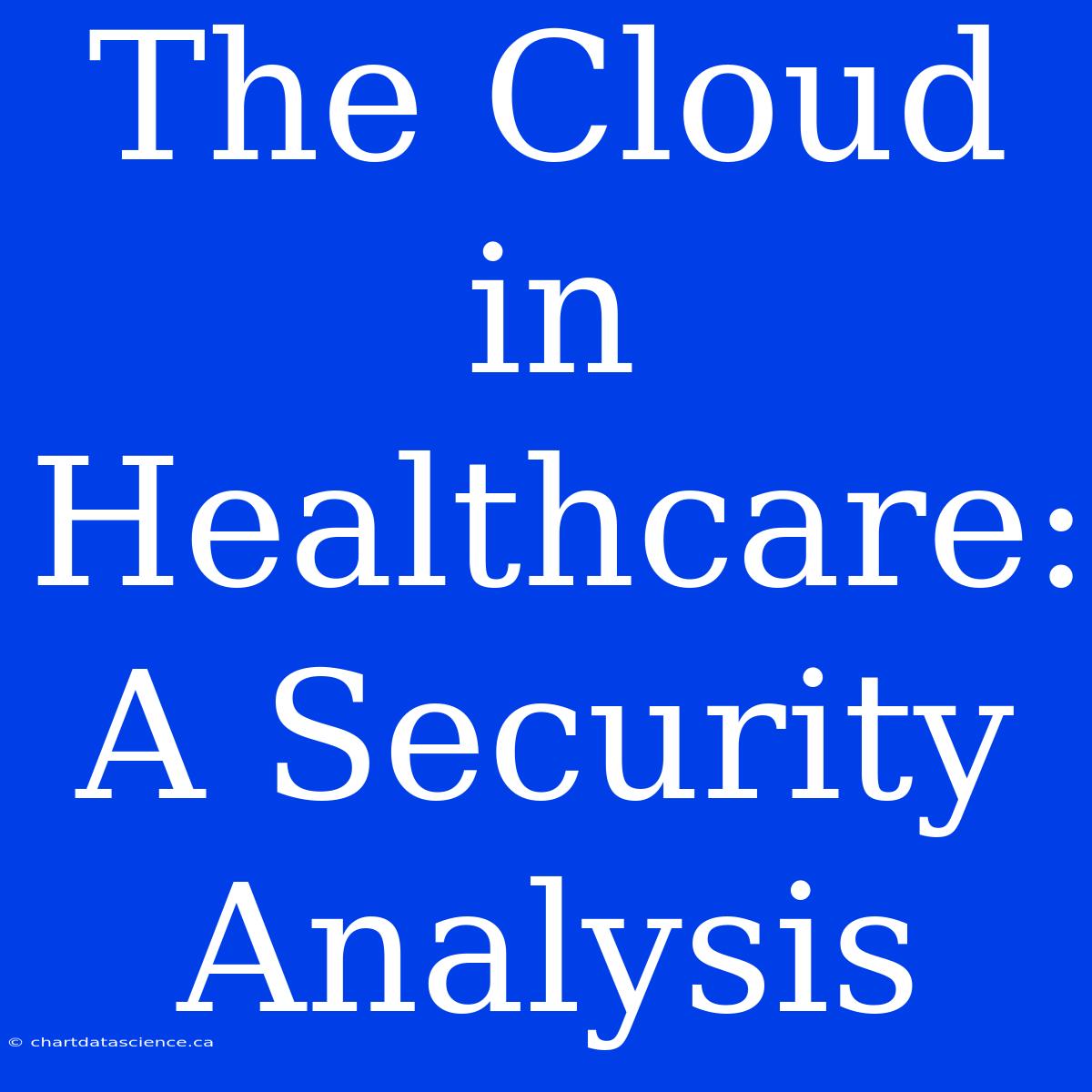The Cloud in Healthcare: A Security Analysis
The healthcare industry is undergoing a massive digital transformation, with cloud computing playing a pivotal role. From electronic health records (EHRs) to medical imaging and telehealth, the cloud is enabling healthcare providers to streamline operations, enhance patient care, and improve access to medical data. However, with the adoption of cloud solutions comes a new set of security concerns.
Security Challenges in Cloud Healthcare
Healthcare data is extremely sensitive, containing personal information, medical records, and financial details. This makes it a prime target for cyberattacks. The cloud, while offering numerous advantages, also presents unique security challenges, including:
- Data breaches: Malicious actors are constantly seeking to exploit vulnerabilities in cloud infrastructure to steal or compromise sensitive data.
- Data privacy: Healthcare organizations must comply with strict regulations like HIPAA in the US and GDPR in the EU. Ensuring data privacy in the cloud requires robust security measures and careful vendor selection.
- Data integrity: Maintaining the accuracy and completeness of healthcare data is critical for patient safety and treatment decisions. Cloud providers must offer mechanisms to ensure data integrity and prevent unauthorized modifications.
- Compliance: Navigating the complex web of healthcare regulations, particularly when using third-party cloud services, can be challenging.
Mitigating Security Risks in Cloud Healthcare
Healthcare organizations can take proactive steps to address security risks in the cloud:
- Implement Strong Access Control: Restricting access to sensitive data based on user roles and permissions is crucial. This includes multi-factor authentication and encryption for data at rest and in transit.
- Regular Security Audits and Vulnerability Assessments: Regularly assessing cloud infrastructure for vulnerabilities and weaknesses is essential for identifying and mitigating potential risks.
- Data Loss Prevention (DLP) Solutions: Deploying DLP tools can help prevent accidental or intentional data leaks, ensuring that sensitive information remains secure.
- Secure Cloud Provider Selection: Choosing a reputable cloud provider with a strong security track record, robust compliance certifications, and comprehensive security features is paramount.
- Employee Training and Awareness: Educating employees about cybersecurity best practices, including phishing scams, malware threats, and data security policies, is essential to prevent human error.
The Future of Cloud Security in Healthcare
The cloud will continue to play a crucial role in the future of healthcare. As technologies like artificial intelligence (AI) and machine learning (ML) become more integrated into healthcare, cloud security will become even more critical. By implementing robust security measures, healthcare organizations can reap the benefits of cloud computing while protecting sensitive patient data.
Key Takeaways
Cloud computing presents immense opportunities for the healthcare industry, but security must be a top priority. Organizations must adopt a proactive security strategy, implement appropriate controls, and partner with reputable cloud providers to safeguard patient data and ensure the integrity of healthcare systems.

